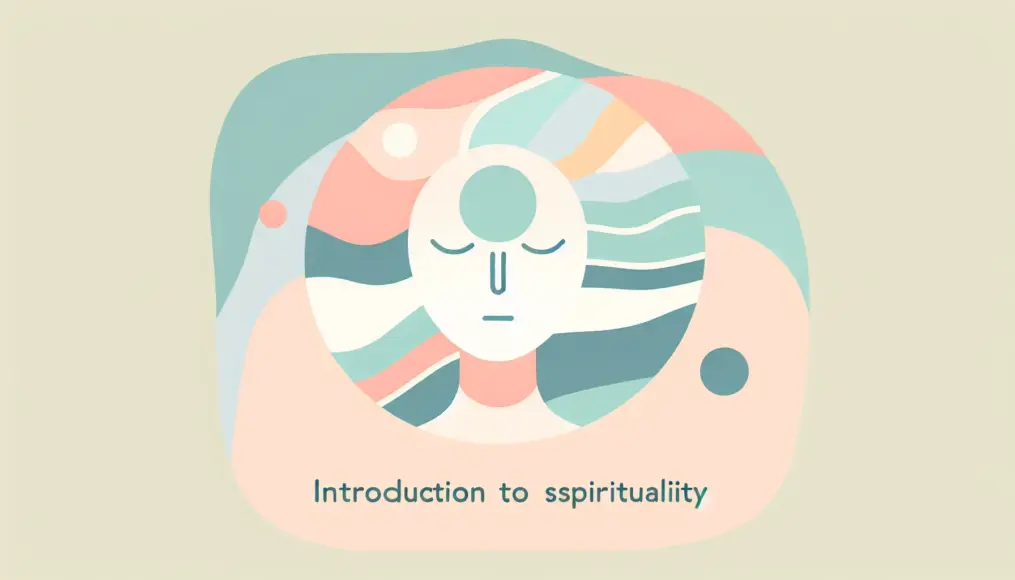For many, the experience of school refusal can present a unique opportunity for personal growth. By incorporating a spiritual perspective, individuals can reflect on themselves and tap into their inner strength. In this article, we’ll explore spiritual methods that can help overcome the challenges of school refusal.
A spiritual approach to emotional growth serves as a powerful tool for deepening self-understanding and enhancing self-esteem. By examining the background and impact of school refusal, we’ll provide practical techniques grounded in spiritual knowledge that can help create a richer, more fulfilling life.
- The Psychological Impact of School Refusal and Ways to Overcome It
- Understanding Spirituality: Essential Insights
- Spiritual Practices to Incorporate into Meditation and Daily Life
Understanding School Refusal and Its Impact
School refusal has become a serious issue, particularly among younger generations. It not only affects mental health and personal growth but can also lead to feelings of social isolation. In this section, we’ll explore the psychological effects of school refusal and discuss ways to overcome feelings of isolation. We will also touch on the potential benefits of incorporating a spiritual perspective to foster self-understanding and emotional growth.
Psychological Effects of School Refusal
The state of refusing to attend school can have significant impacts on mental health. One major consequence is a decline in self-esteem and self-worth. Not attending school often leads to weakened relationships with friends, which can intensify feelings of loneliness. This situation can, in turn, trigger increased anxiety and depressive symptoms.
Moreover, prolonged school refusal can result in academic setbacks and fears about the future. Given the wide-ranging psychological effects, it’s crucial to address these issues early on. Incorporating a spiritual approach may provide tools for achieving emotional stability.
- Decline in self-esteem due to school refusal
- Increased feelings of loneliness and anxiety
- Academic setbacks and fears about the future
Overcoming Feelings of Social Isolation
To combat feelings of social isolation, the first step is to accept oneself. From a spiritual perspective, listening to your inner voice is essential. This approach can deepen self-understanding and help alleviate feelings of isolation.
Additionally, practices like meditation and other spiritual exercises can help calm the mind. This can boost self-esteem and make it easier to connect with others. Building new relationships through hobbies and interests is also a great way to lessen feelings of isolation.
- Spiritual approaches to self-acceptance
- Using meditation for emotional stability
- Building connections through shared interests
Understanding the Basics of Spirituality
To overcome issues like school refusal, grasping the fundamentals of spirituality is essential. Understanding what spirituality entails can help deepen your personal growth and self-understanding. In this section, we will explore the basic concepts of spirituality and practical methods for incorporating it into your life. By learning about these aspects, you’ll find a clearer path toward building a richer life.
What is Spirituality?
Spirituality refers to the mental and emotional aspects of existence that go beyond the material world, focusing on personal growth and the deeper meaning of life. By contemplating our purpose and our connection to the universe, we can enhance our self-awareness. Adopting this perspective can make it easier to experience peace and happiness in our daily lives.
Moreover, spiritual learning is rooted in personal introspection, fostering a sense of connection with others. Even in situations of school refusal, this spiritual understanding can provide vital emotional support.
- Spirituality promotes mental growth
- Contemplating our purpose and connection to the universe
- Brings stability and happiness to daily life
Practical Ways to Embrace Spirituality
There are several ways to practice spirituality, but starting with meditation is particularly effective. Meditation is a key tool for calming the mind and tuning into your inner voice, allowing you to reflect on yourself. By engaging in regular meditation, you can maintain peace of mind while deepening your self-understanding.
Additionally, integrating spiritual habits into your everyday life is crucial. For instance, cultivating gratitude and spending time in nature can be highly beneficial. These practices can enhance your self-esteem and strengthen your connections with others.
- Listen to your inner voice through meditation
- Cultivate a sense of gratitude in daily life
- Refresh your mind by connecting with nature
The Connection Between School Refusal and Spirituality
Experiencing school refusal can serve as a significant turning point for personal growth. In this section, we’ll explore the relationship between school refusal and spirituality. By incorporating a spiritual perspective, we can deepen our self-understanding and foster emotional development. We’ll also take a closer look at specific approaches to unlocking our inner strength.
Emotional Growth Through a Spiritual Lens
School refusal can provide an opportunity for self-exploration. This time can be utilized to reflect on oneself from a spiritual viewpoint. Emotional growth comes from deepening our self-understanding, and through spiritual learning, we can take a step toward building a richer life.
Additionally, emotional growth fosters a sense of connection with others. By adopting a spiritual perspective, we can value our relationships not only with ourselves but also with those around us. This understanding will undoubtedly become a powerful asset in our future lives.
- School refusal offers opportunities for self-exploration
- Spiritual learning promotes emotional growth
- Valuing connections with others
Ways to Unlock Your Inner Strength
To unlock your inner strength, the first step is to accept yourself. In spiritual approaches, self-acceptance is seen as a crucial element in cultivating emotional resilience. By deepening your understanding and love for yourself, you can maximize your inner potential.
Practical methods include meditation and affirmations. Through meditation, you can calm your mind and listen to your inner voice, allowing you to connect with your true essence. Additionally, using positive affirmations can enhance your self-esteem. By practicing these techniques, you can tap into your inner strength and overcome the challenges of school refusal.

If you found this article interesting, you might also enjoy our piece on “How to Open the Door to Spirituality for Emotional Growth.” It provides practical methods for deepening self-growth from a spiritual perspective and is filled with tips to promote emotional development. Make sure to check it out!
- Self-acceptance nurtures inner strength
- Listen to your inner voice through meditation
- Enhance self-esteem with affirmations
Practical Spiritual Techniques
Incorporating spiritual knowledge into everyday life can be a powerful way to overcome challenges like school refusal. In this section, we’ll explore practical spiritual techniques in detail, focusing particularly on the benefits and methods of meditation, as well as how to weave spiritual habits into your daily routine. These techniques can help foster mental stability and personal growth.
The Benefits and Methods of Meditation
Meditation is a highly effective way to calm the mind and deepen self-understanding. Firstly, practicing meditation can alleviate stress and anxiety, providing a sense of mental peace. This is especially helpful for those experiencing anxiety related to school refusal.
There are various methods of meditation, but a basic approach involves sitting in a quiet place and beginning with deep breaths to center yourself. By concentrating on your breathing, you can clear your mind and connect with a sense of inner tranquility. It’s a good idea to start with just a few minutes and gradually extend the duration as you become more comfortable.
- Meditation brings mental peace
- Reduces stress and anxiety
- Start by focusing on your breath
Incorporating Spiritual Habits into Daily Life
By incorporating spiritual habits into your daily routine, you can enhance your mental stability. For example, practicing gratitude can be incredibly effective. By writing down things you are thankful for each day, you cultivate a habit of maintaining a positive outlook.
Additionally, spending time in nature is another vital spiritual practice. Being outdoors can refresh your spirit and offer you a chance to reflect on yourself. Furthermore, using affirmations or positive statements can be a great way to boost your self-esteem.
- Value the feeling of gratitude
- Spend time connecting with nature
- Use affirmations to enhance self-esteem
Conclusion
Taking a break from school can be seen as an opportunity for personal growth. By incorporating a spiritual perspective, you can deepen your self-understanding and tap into your inner strength. Practicing meditation and integrating spiritual habits into your daily routine can help maintain your mental stability while fostering positive changes in your life.
In this way, utilizing spiritual knowledge and techniques can be incredibly effective in overcoming the challenges of school avoidance. We encourage you to incorporate these practices into your everyday life to promote your mental growth. By facing yourself, new paths can open up.
- School avoidance can be viewed as a chance for self-growth
- Draw out your inner strength with a spiritual perspective
- Integrate meditation and spiritual habits into your daily life
By embarking on your journey of mental growth, you too can unlock new doors. Give it a try! And if you have any thoughts or questions about this article, feel free to share them in the comments.


Comment